 More than 30 some years ago we naively drove from the ancient Syrian ruins of Palmyra to the Anti Lebanon mountains at the border.
More than 30 some years ago we naively drove from the ancient Syrian ruins of Palmyra to the Anti Lebanon mountains at the border.
“How the hell did you get here and where do you think you are doing?” was the question of the soldiers at the check point.
“Uh, we just want to see the cedar trees.”
“Are you crazy, don’t you know there is civil war raging on the other side? Turn around and go back down before we arrest you.”
All these years later we are driving a few miles from the border again, except on the other, Lebanese side. Damascus is just about an hour’s drive away. And we can’t cross to the other side.
As the French say so well: Plus ça change, plus c’est la même chose…The more things changes, the more they stays the same.
Because it is complicated. The politics of the Middle East in general and Lebanon in particular. Always in the crossroads of geography and history with many diverse nations, ethnicities, religions, languages and even alphabets. Did you know Lebanon, more precisely Byblos, is the cradle of our alphabet? 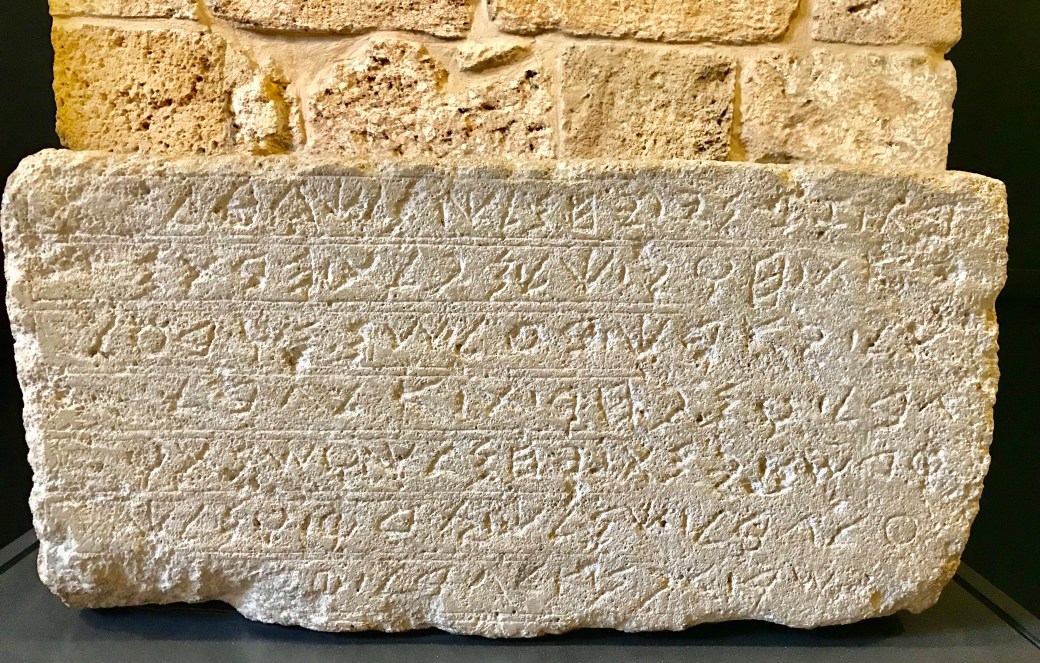 Why would you go to a country most people hear about only when something blows up or somebody is assassinated?
Why would you go to a country most people hear about only when something blows up or somebody is assassinated?
Because war has been over for over 25 years and you should not believe everything you hear in the news. It is a beautiful country and it is sad to see so few visitors come and enjoy Lebanon and the hospitality of her vibrant people. If you go you will be rewarded with many great sights and experiences. 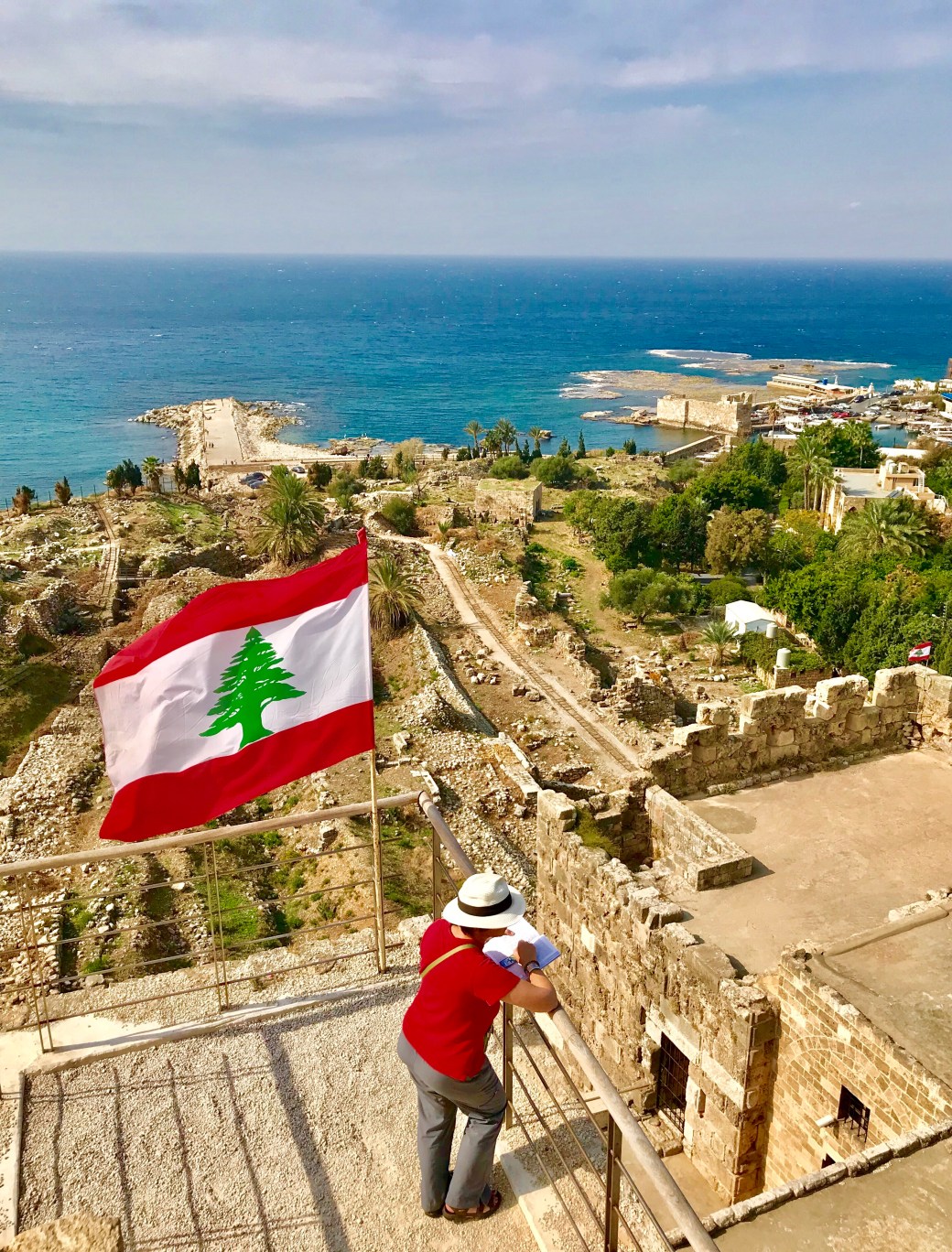 /On the top of the Byblos crusader Castle, a colorful Maronite town full of ancient history barely an hour drive along the coast north from Beirut.
/On the top of the Byblos crusader Castle, a colorful Maronite town full of ancient history barely an hour drive along the coast north from Beirut. 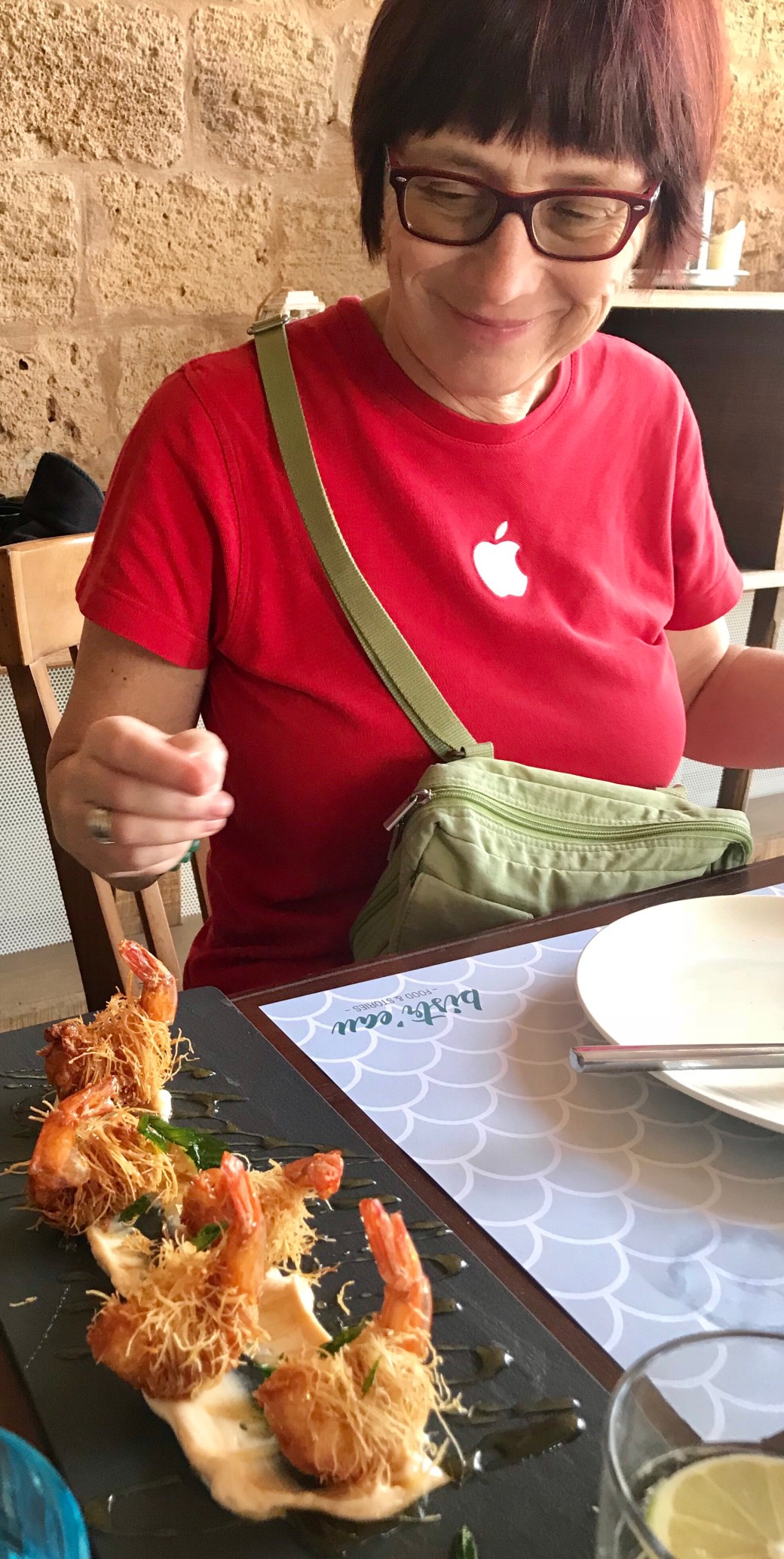
You are not going to die here by starvation. Food is good and seafood here is really out of this world. I love it, here on the picture are the shrimps beautifully presented in the cozy Bistreau (sp.!) in the fishing port of a small hamlet called Batroun. But all other stuff was excellent anywhere we stopped to recharge our batteries. I usually go for octopus, and these guys know how to prepare it– juicy and soft, not rubbery as is too often the case.
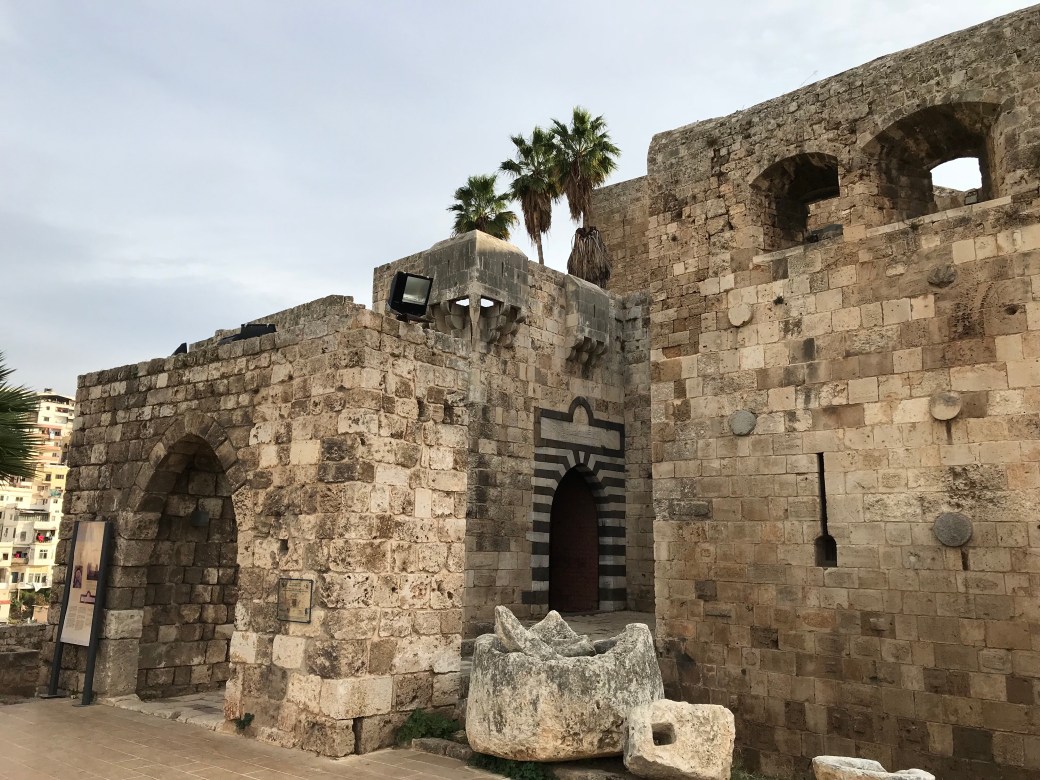 The huge medieval Citadel of Tripoli in the north. Any minute now a crusader knight will gallop by on his sturdy steed… The second largest city in the country, predominantly Muslim with a lot of Palestinian refugees. Maybe because of the intensity of life there driving through this town was a very exciting and quite a memorable experience. We are happy to report no car damage! Unbelievable!
The huge medieval Citadel of Tripoli in the north. Any minute now a crusader knight will gallop by on his sturdy steed… The second largest city in the country, predominantly Muslim with a lot of Palestinian refugees. Maybe because of the intensity of life there driving through this town was a very exciting and quite a memorable experience. We are happy to report no car damage! Unbelievable!
 The Cedars of God, the last remains of those very old trees everybody in history used to cut down. Starting with the Phoenicians building their famous trading ships, and Solomon building his famous Jerusalem temple. Lebanese are trying to protect what is left and replant at least some, but seeing all the barren hills around, it looks too little, too late. But as they say: What is the best time to plant a tree? Forty years ago. What is the second best time? Now!
The Cedars of God, the last remains of those very old trees everybody in history used to cut down. Starting with the Phoenicians building their famous trading ships, and Solomon building his famous Jerusalem temple. Lebanese are trying to protect what is left and replant at least some, but seeing all the barren hills around, it looks too little, too late. But as they say: What is the best time to plant a tree? Forty years ago. What is the second best time? Now!
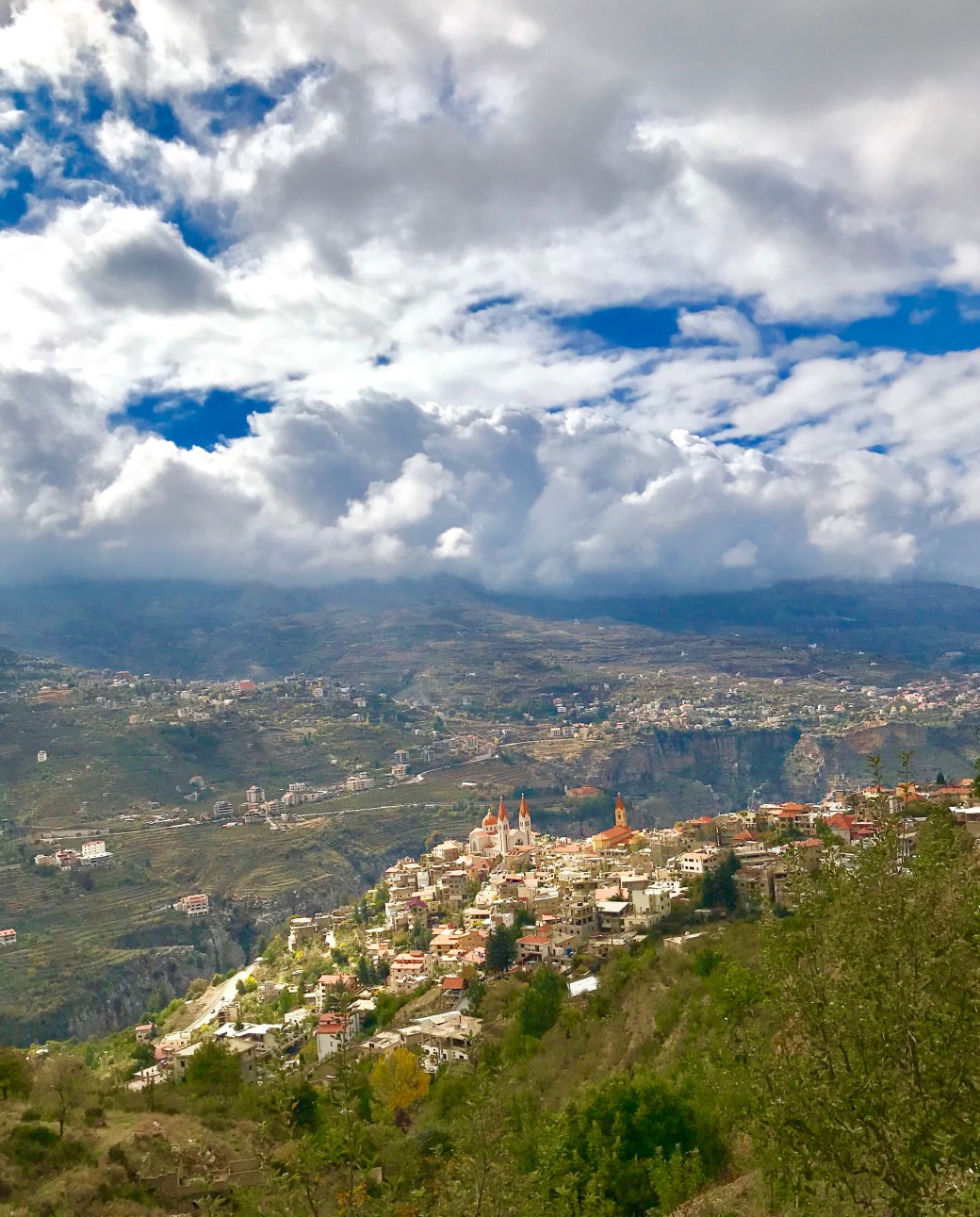 Bcharee, another pretty town predominantly populated by Maronites, the birth place of the famous poet Khalil Gibran, the 3rd best selling writer of all times. What, you haven’t heard of his book The Prophet? You are missing out on our youngest daughter’s favorite reading. Bcharre sits on the rim of the canyon-like Qadisha Valley. It is the Lebanese (mini) Grand Canyon, filled with numerous caves hidden in the canyon’s sheer limestones walls. For centuries these caves housed Christian hermits, and gave basis for many monasteries and churches. We saw how easy it must have been to hide here, as we could not locate quite a few of the sites by car and by foot despite GPS.
Bcharee, another pretty town predominantly populated by Maronites, the birth place of the famous poet Khalil Gibran, the 3rd best selling writer of all times. What, you haven’t heard of his book The Prophet? You are missing out on our youngest daughter’s favorite reading. Bcharre sits on the rim of the canyon-like Qadisha Valley. It is the Lebanese (mini) Grand Canyon, filled with numerous caves hidden in the canyon’s sheer limestones walls. For centuries these caves housed Christian hermits, and gave basis for many monasteries and churches. We saw how easy it must have been to hide here, as we could not locate quite a few of the sites by car and by foot despite GPS.
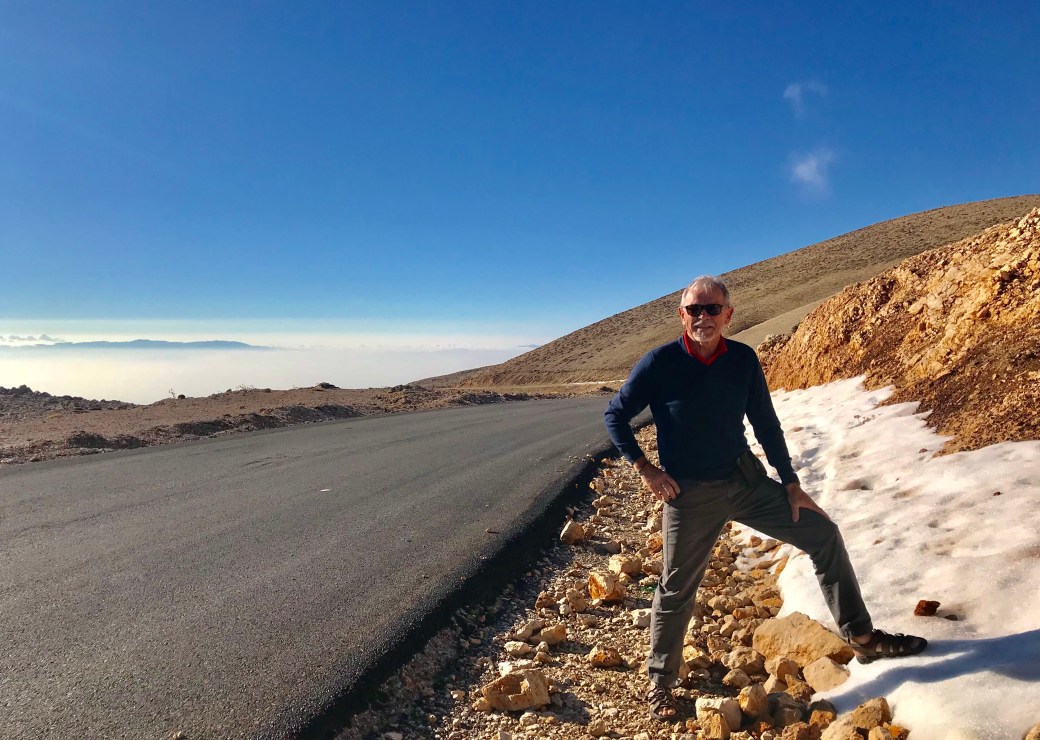 Crossing the mountains via the shortcut from Bcharre to Beka’a Valley. The Ainata mountain pass at elevation of about 7,500’ above the sea level surprised us. We heard all sorts of warnings, but we found the road excellent. Definitely the paving was much newer and much better than in our hometown. The only other people we met were a bored soldier at the checkpoint and some friendly shepherds in red and white checkered headscarves trying to shoo their flock to the side so we could squeeze by! With all the global warming the big rains and snow are late yet again so it was smooth sailing all the way down to the fertile Bekaa Valley.
Crossing the mountains via the shortcut from Bcharre to Beka’a Valley. The Ainata mountain pass at elevation of about 7,500’ above the sea level surprised us. We heard all sorts of warnings, but we found the road excellent. Definitely the paving was much newer and much better than in our hometown. The only other people we met were a bored soldier at the checkpoint and some friendly shepherds in red and white checkered headscarves trying to shoo their flock to the side so we could squeeze by! With all the global warming the big rains and snow are late yet again so it was smooth sailing all the way down to the fertile Bekaa Valley.
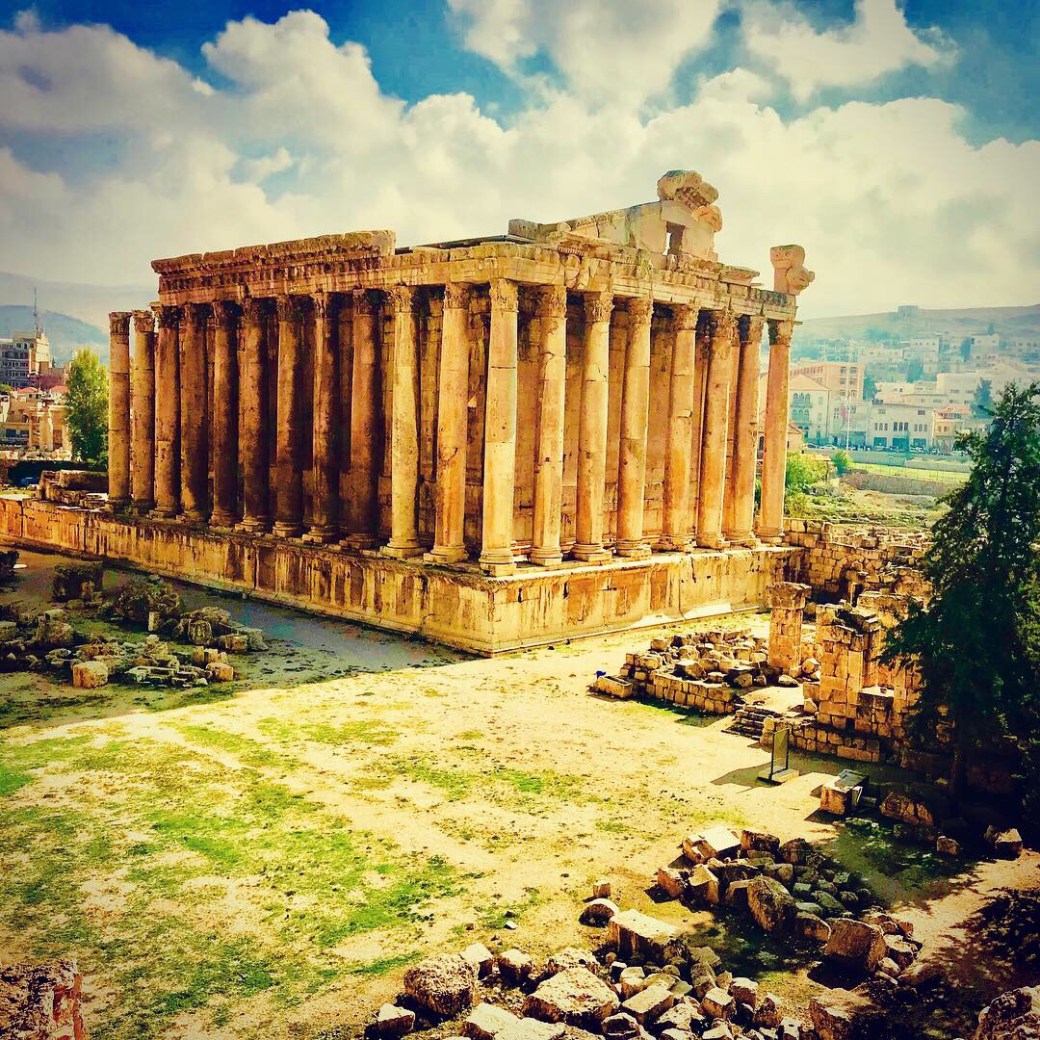 The Bacchus Temple of Baalbek. A huge Roman temple complex well hidden in the traffic of this capital of Beka’a Valley. Unless you speak Arabic or travel with a guide holding your hand 24/7 you are toast. Well, we were until we finally spotted the old institution from the golden age of tourism-rather forlorn looking Palmyra hotel. We parked in the front and were greeted by an old gentleman in lovely English. Over Turkish coffee he proceeded to reminisce of kings and artists and jazz singers he had served in the past nearly 60 years.
The Bacchus Temple of Baalbek. A huge Roman temple complex well hidden in the traffic of this capital of Beka’a Valley. Unless you speak Arabic or travel with a guide holding your hand 24/7 you are toast. Well, we were until we finally spotted the old institution from the golden age of tourism-rather forlorn looking Palmyra hotel. We parked in the front and were greeted by an old gentleman in lovely English. Over Turkish coffee he proceeded to reminisce of kings and artists and jazz singers he had served in the past nearly 60 years. 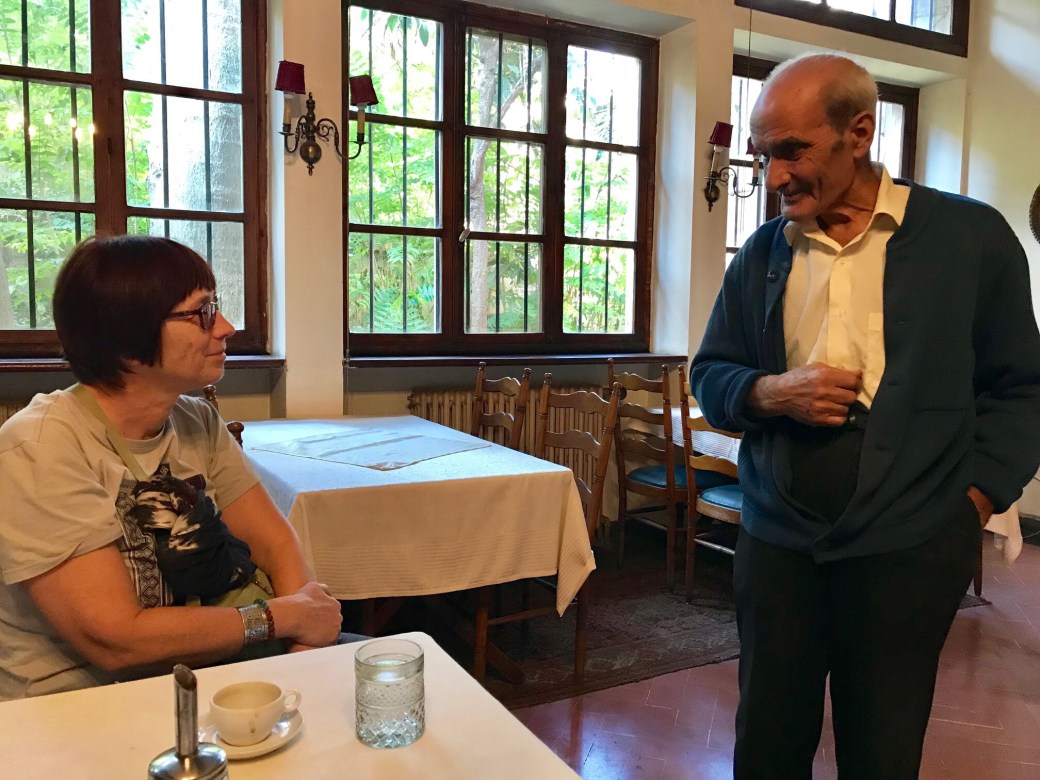 Now he was all alone with only black and white photos of celebrities keeping him company. The war on the other side and the facts that Baalbek was supposed to be the center of Hezbollah acitivites didn’t help. The only presence of Hezbollah we saw were the T shirts emblazoned with their name being sold at a few souvenir stalls by the entrance to the archeological complex right across from the hotel.
Now he was all alone with only black and white photos of celebrities keeping him company. The war on the other side and the facts that Baalbek was supposed to be the center of Hezbollah acitivites didn’t help. The only presence of Hezbollah we saw were the T shirts emblazoned with their name being sold at a few souvenir stalls by the entrance to the archeological complex right across from the hotel.
 The seafood discussed above is not the only culinary attraction of this country. You should not miss Lebanese wine to complement the local chefs’ surprises served at your table. Here we are in the Chateau Kefraya Winery, another well known wine lover’s delight after Ksara Winery we saw the day before. Ksenija discussed with our winery guide Tamara, an agricultural engineer, the size of the Lebanese wine market, considering that over half of the local population are moslems and they are prohibited by Koran to drink alcohol. Tamara had an easy answer:
The seafood discussed above is not the only culinary attraction of this country. You should not miss Lebanese wine to complement the local chefs’ surprises served at your table. Here we are in the Chateau Kefraya Winery, another well known wine lover’s delight after Ksara Winery we saw the day before. Ksenija discussed with our winery guide Tamara, an agricultural engineer, the size of the Lebanese wine market, considering that over half of the local population are moslems and they are prohibited by Koran to drink alcohol. Tamara had an easy answer:
– 15% of Lebanese moslems admit easily to frequent sinning in drinking alcohol
– 80% of them would never admit to drinking alcohol, but secretly they actually DO
– remaining 5% swear they never DO and never WILL but nobody believes them.
Understandably the winery owners plan further expansion!
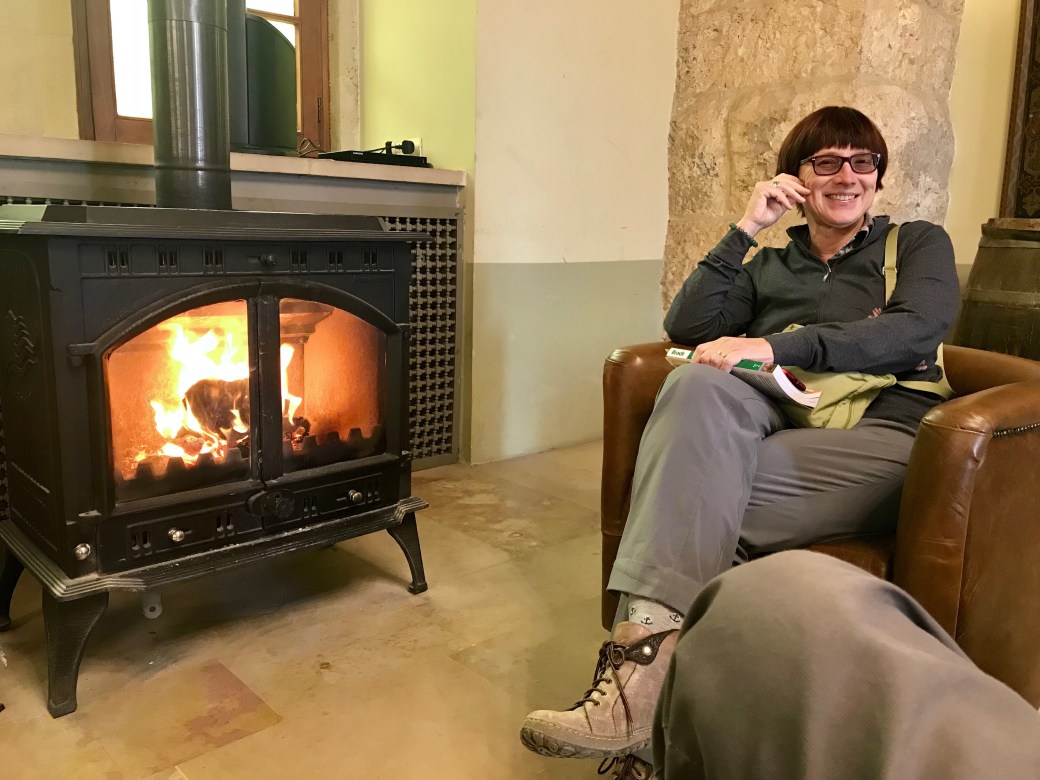 Yup, it can get cold in the Lebanese mountains and any fireplace can get very handy. Even the pleasant balmy climate of Eastern Mediterranean can betray you when you drive up to the elevation of five thousand feet or more. You better pack Long Johns, or at least a warm jacket!
Yup, it can get cold in the Lebanese mountains and any fireplace can get very handy. Even the pleasant balmy climate of Eastern Mediterranean can betray you when you drive up to the elevation of five thousand feet or more. You better pack Long Johns, or at least a warm jacket!
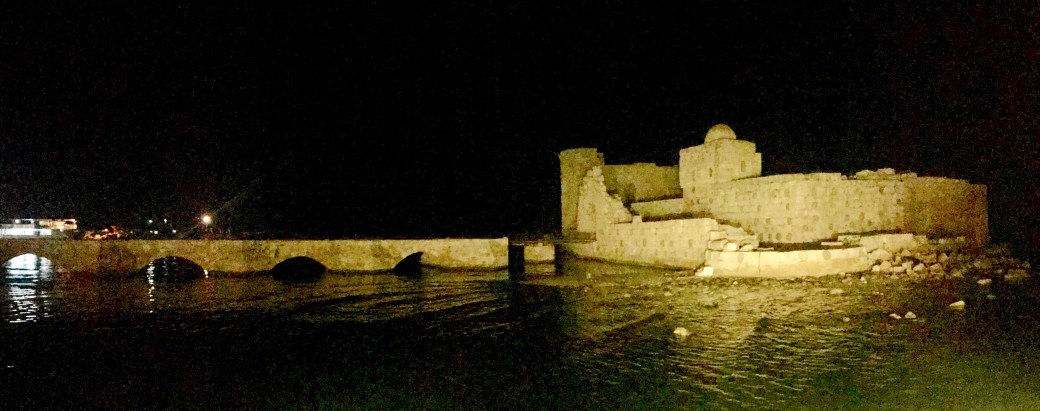 Looking for a romantic evening on the coast? Opportunities are plentiful. Like this photo taken from the corniche of the city of Sidon (Saïda in Arabic) where we decided to have a dinner in a beautiful restaurant. If it were not for the great seafood we ordered (another octopus, I could not resist!) we could have easily forded the shallow water between our table and “ramparts” of the castle! No wonder crusaders lost their cause a long time ago.
Looking for a romantic evening on the coast? Opportunities are plentiful. Like this photo taken from the corniche of the city of Sidon (Saïda in Arabic) where we decided to have a dinner in a beautiful restaurant. If it were not for the great seafood we ordered (another octopus, I could not resist!) we could have easily forded the shallow water between our table and “ramparts” of the castle! No wonder crusaders lost their cause a long time ago.
In our quest to see as much as possible of this country we continued even further to the south, crossing the Litani River into the former so called Israeli security zone. We stopped at the village of Cana where Jesus performed his first miracle at a wedding – turning water into wine. How fitting for Lebanon.
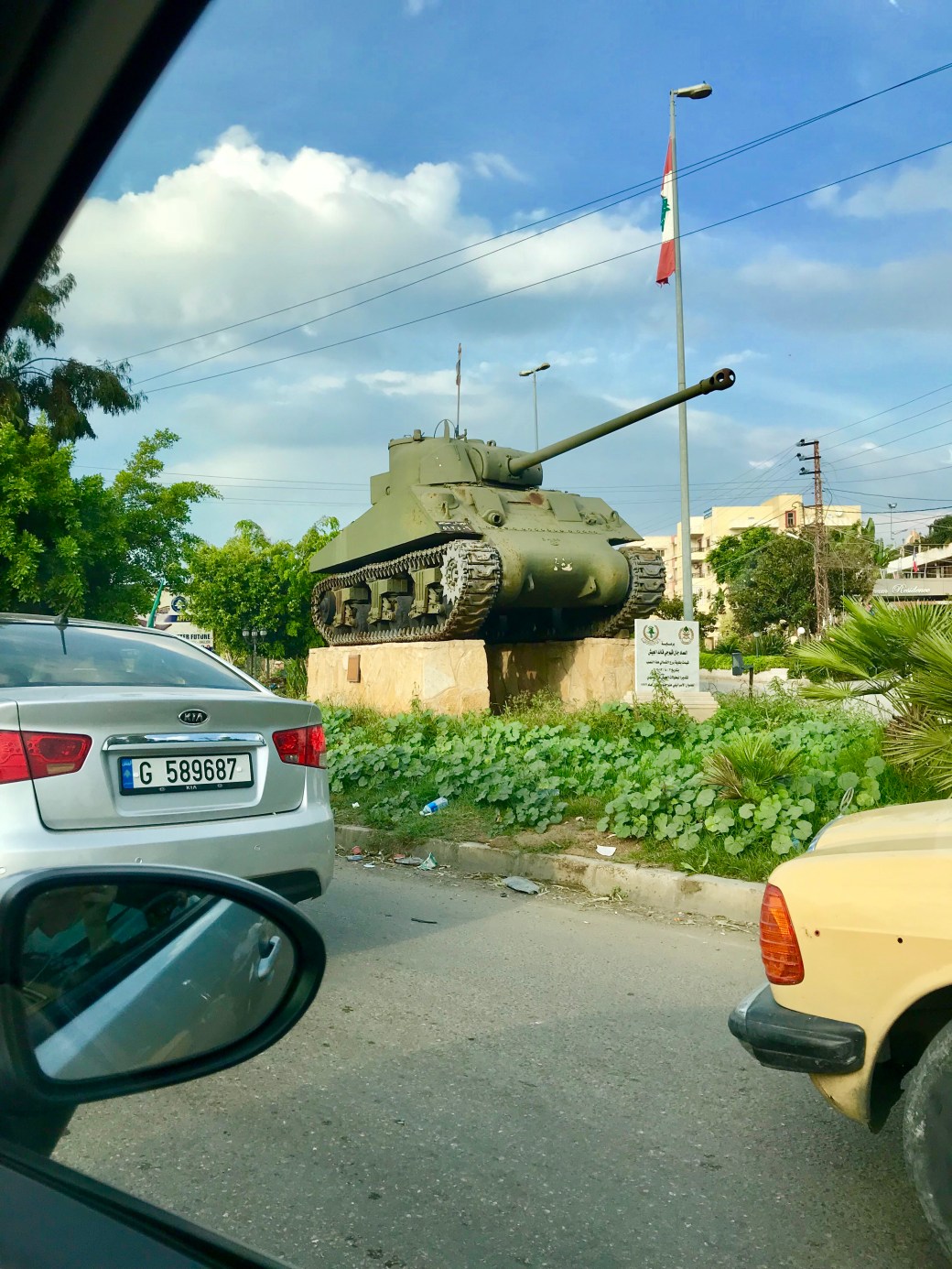 While the tank on the picture was empty we did come across a group of United Nations peace force soldiers out on their day off admiring the local sights.
While the tank on the picture was empty we did come across a group of United Nations peace force soldiers out on their day off admiring the local sights.
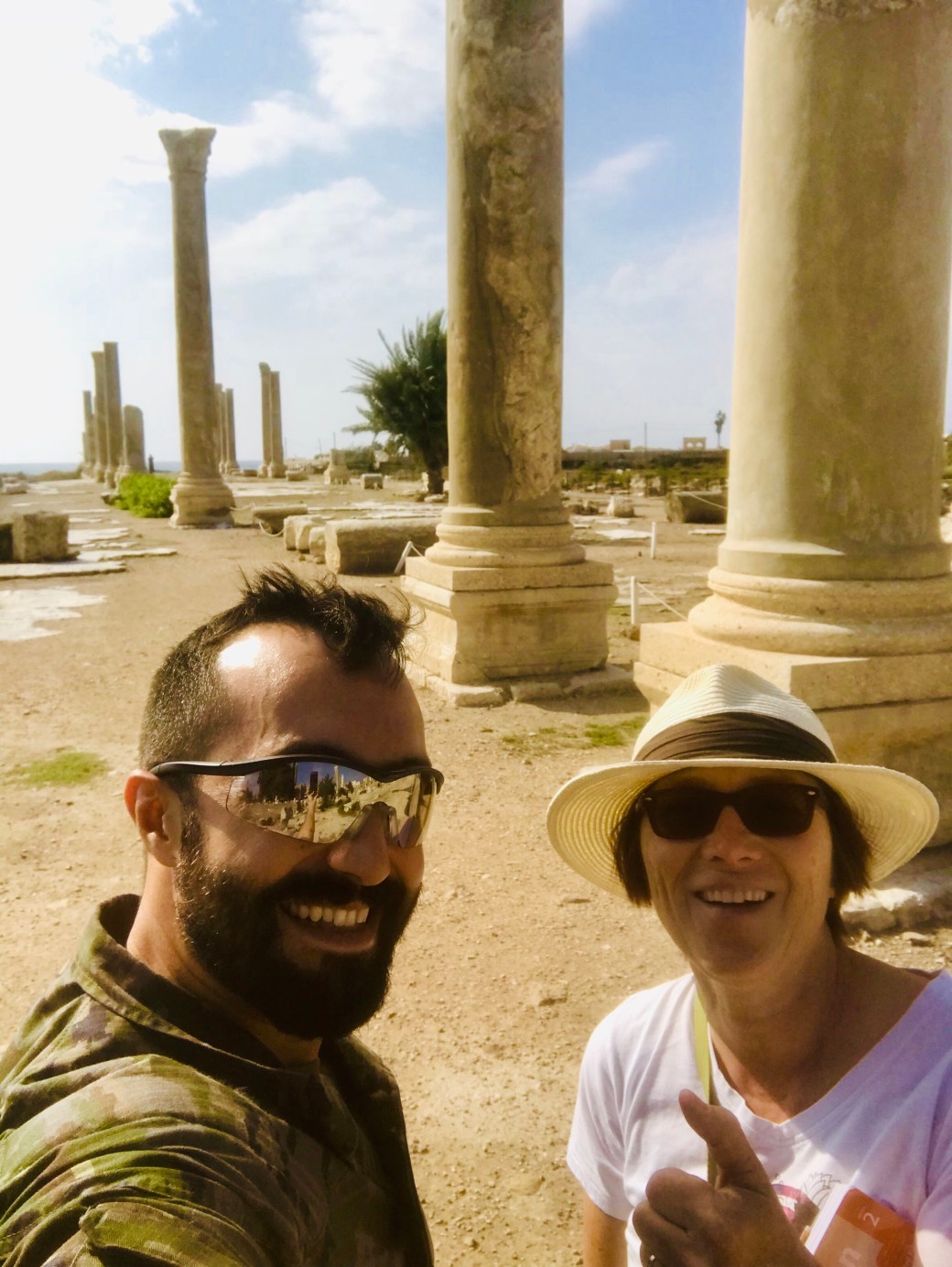
Well, all those pictures, no matter how colorful they are, do not tell the whole story. Only when you talk to locals, you get some hints why this country lost almost twenty years and over 100,000 thousand lives in the civil war. You keep wondering, after talking to all those pleasant, helpful and positive Lebanese people from all walks of life why the heck had they been killing each other?
As you can expect, it is complicated. It is a very small country. How small? I do not want to bother you with square miles. Let me just tell you that even after criss crossing most all of this country we did not have to fill the gas tank even twice.
It must be that such a small country has an incredibly large variety of religions. There are 18 official government recognized religious sects, Muslim, Christian and other. How come that French eating more than 300 varieties of cheese could still get along and 18 kinds of church/mosques/sanctuary goers could not, even as many are French speakers? There are to boot conflicts within the main religions themselves. 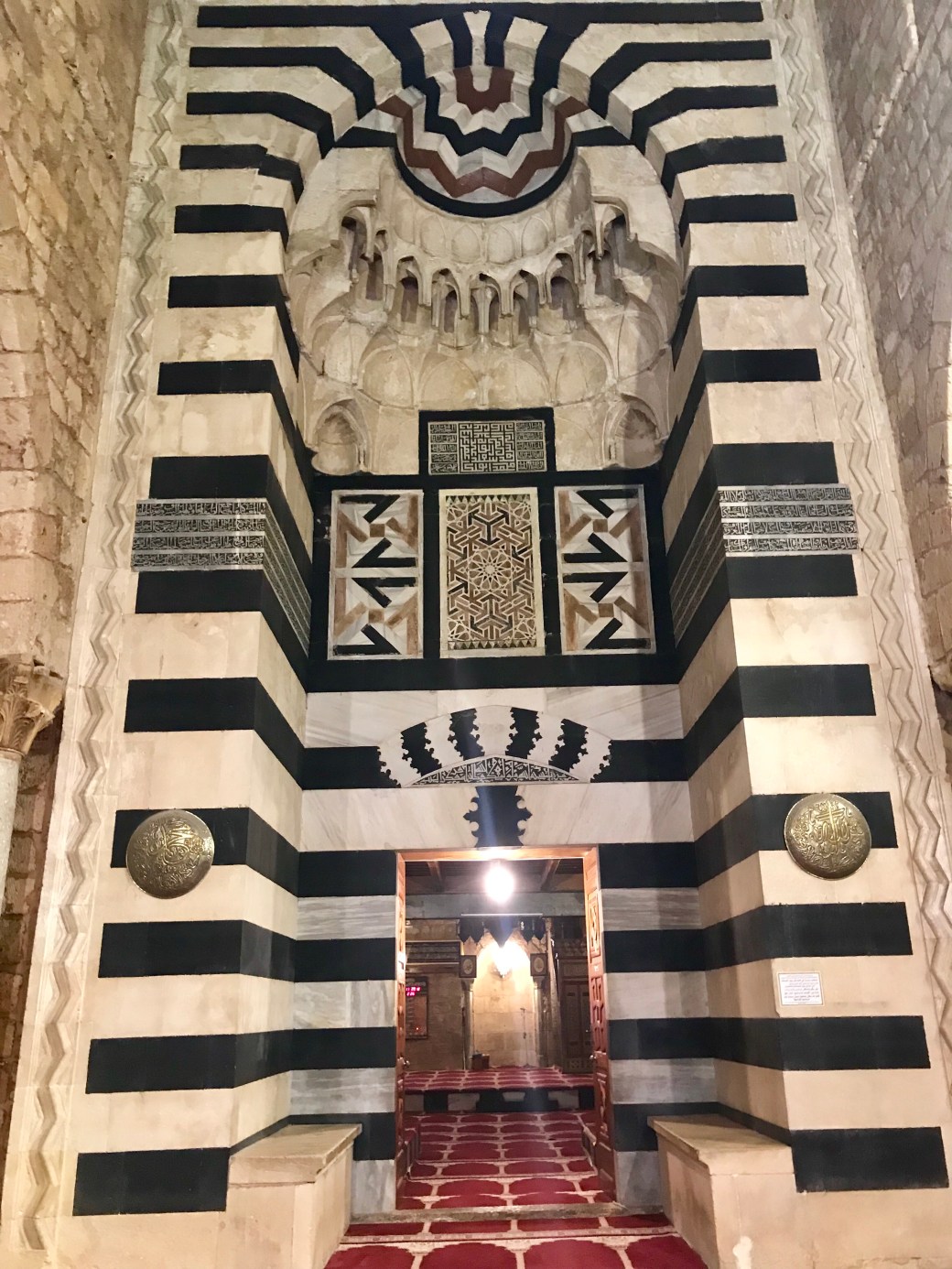 The next problem is that many people being born and living in Lebanon all their lives are not recognized as Lebanese citizens. Some of them are legal residents, but many of them are officially registered refugees and a lot are something in between living on the margins of society. And that is a terrible way to live.
The next problem is that many people being born and living in Lebanon all their lives are not recognized as Lebanese citizens. Some of them are legal residents, but many of them are officially registered refugees and a lot are something in between living on the margins of society. And that is a terrible way to live.
We spent an interesting morning talking to a man with a Lebanese Maronite Christian mother and Palestinian Christian refuge father. Even though he was born in Lebanon some 50 years ago he can not have the citizenship, because only a father can bestow that on a child. So he can not get a passport. He can not go to public university or officially work and can not own his home. (He put it in a friend’s daughter’s name and has to trust and pray that she will remain a trustworthy person.)
I cannot be an expert after just a week spent here but some of the conversations we had with a few couples about the issues they face in their everyday lives really took us aback. 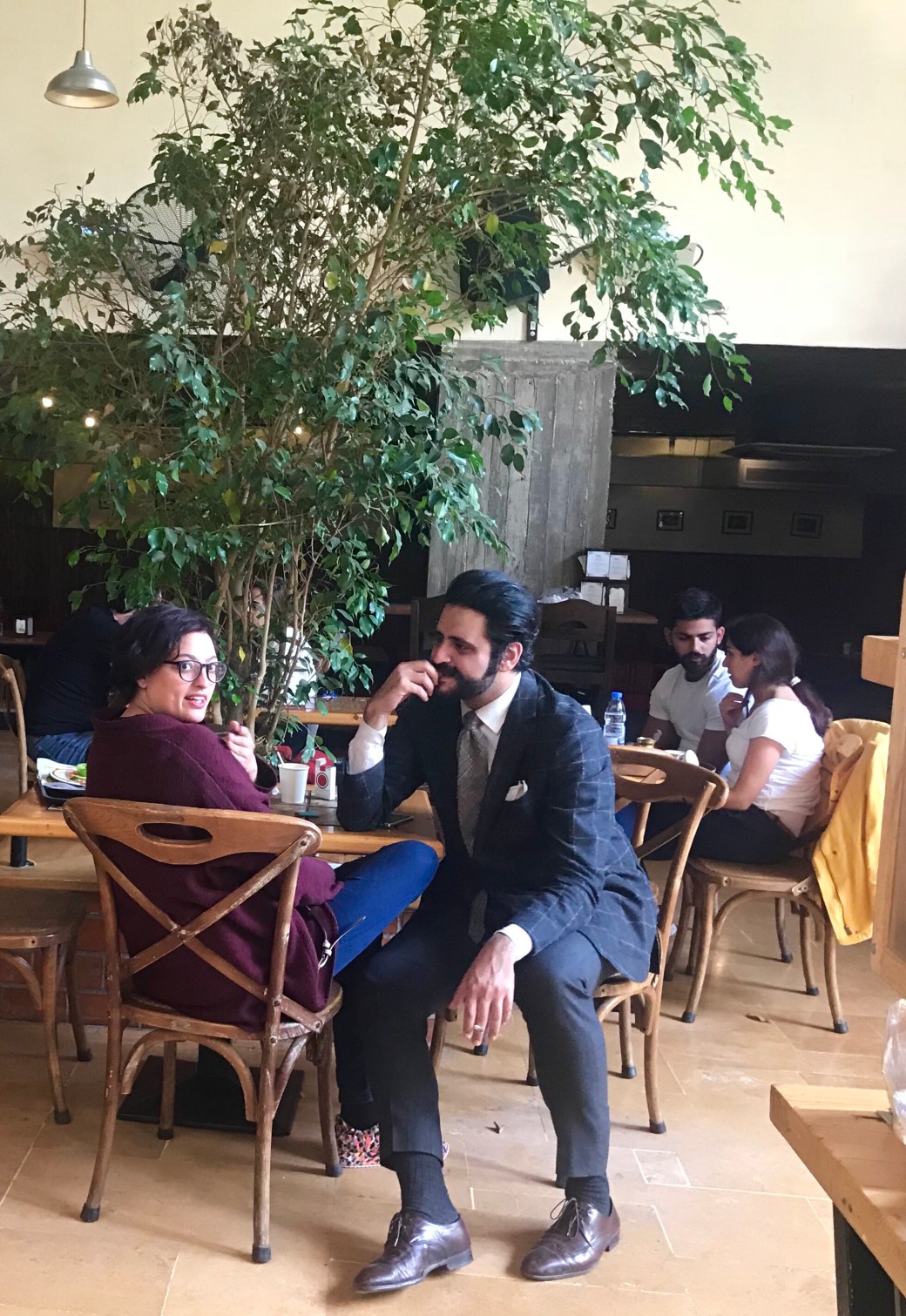 For example you can not get married in Lebanon if your partner is not from exactly the same religion and sect. So couples have to get married in Cyprus and jump on a plane to get back to their wedding reception by the evening. The foreign marriage certificate is then recognized in Lebanon.
For example you can not get married in Lebanon if your partner is not from exactly the same religion and sect. So couples have to get married in Cyprus and jump on a plane to get back to their wedding reception by the evening. The foreign marriage certificate is then recognized in Lebanon.
I am quite hesitant to say something which may not be necessarily correct. But I strongly feel it is not easy in economically, religiously, racially and politically highly stratified Lebanese society to navigate through norms, taboos, and customs to pursue their happiness/full potential or at least not to feel totally stuck and miserable. It maybe the reason so many “true” Lebanese are living and working in diaspora overseas because they stopped hoping things will ever change. Yet so many Palestinian and now Syrian refugees are staying put, still hopeful things will change for the better. As I told you in the beginning of this blog:
It is complicated. 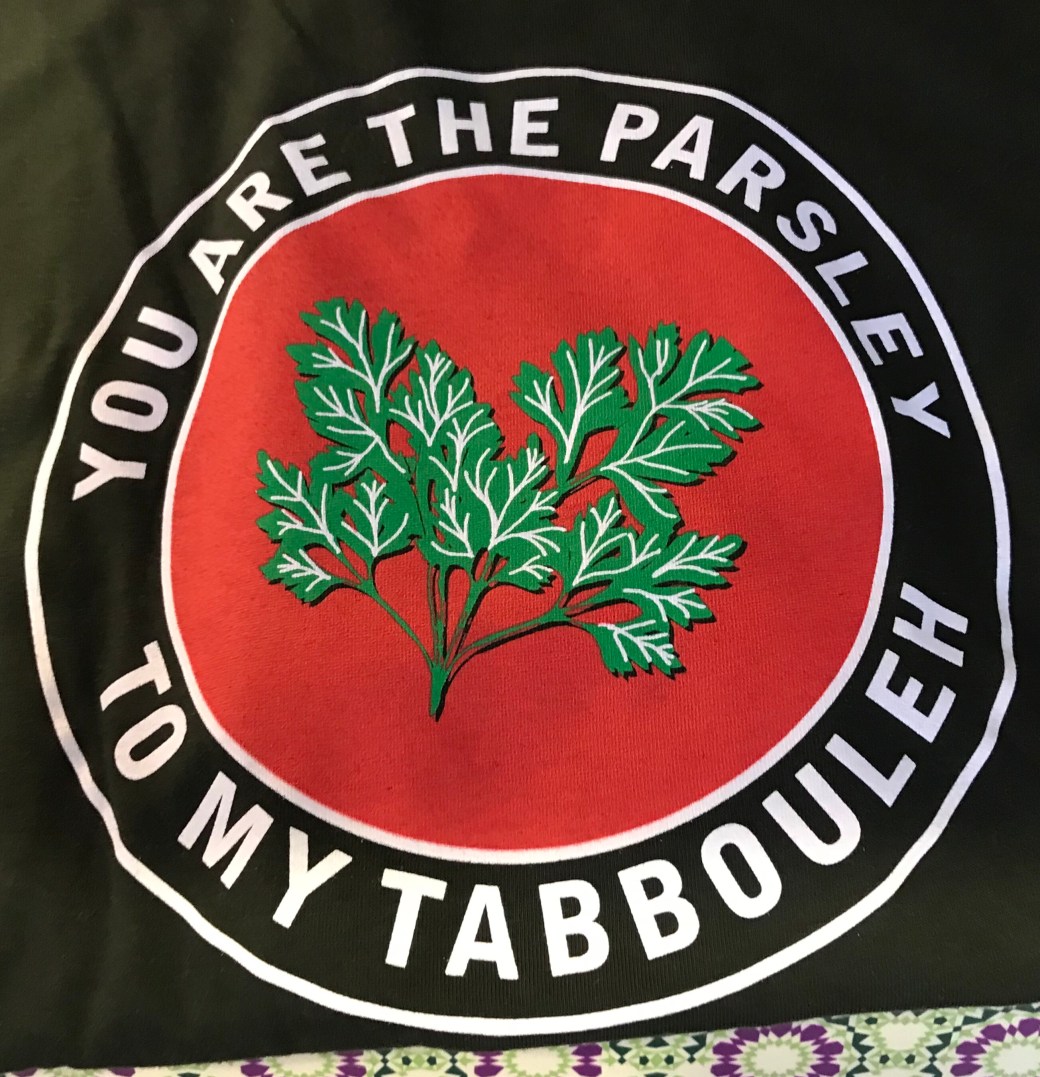
Goodbye Lebanon, hello Egypt!

Complicated, perhaps — fascinating, definitely!
LikeLiked by 1 person
This is better than any history book. Thanks for the journey through Lebanon.
LikeLiked by 1 person
Thank you for both Lebanon reports! You truly put the humanity of each place you visit. You suck us in to lives of “regular’ people and inform us of all these hidden gems. Yet – so ironic your border experience today vs 30 years ago. Lebanon sounds like a kaleidoscope in a way (did you write that somewhere or did I read it elsewhere?). My parents lived and had their first two children in Lebanon in the early 60s – it sounded like utopia; however, they did mention that some unpredictable things happened they could not understand that left a weird after taste. A friend of mine married a Lebanese man and they enjoy going on vacation there! And my mini experience was in the early 90s visiting Syria and hearing from the Syrians how one needed to travel to Lebanon to indulge and enjoy life – which sounded so paradoxical since the war there was still fresh in our minds. Thank you for the post – I know what book to go get myself!
LikeLiked by 1 person
Yes, my understanding is that it was quite an utopia at that time with Beirut being called Paris of the East and lots of fancy and wild partying going on on the beaches.
I saw some old pictures from that time with women in beautiful haute couture gowns and also beach clubs and swimming suits.
LikeLike
Thanks, Gail
LikeLike
I would love to explore Lebanon one day! So beautiful and full of history. And home of Mr Gibran of course!
LikeLike